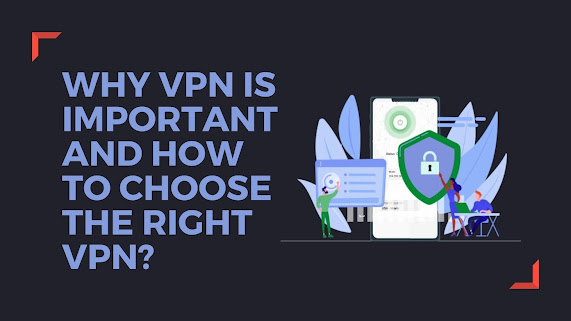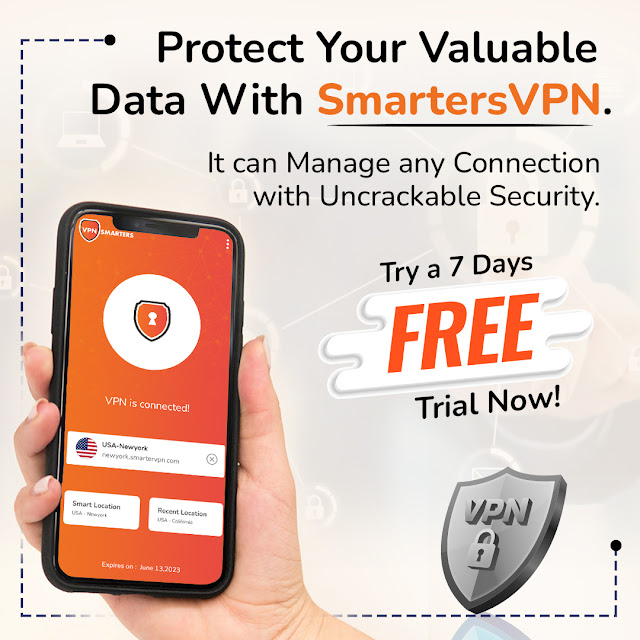Why VPN is Important and How to choose the right VPN?
How does it work?
When you install a VPN on your device, all of the internet traffic you send and receive goes through an encrypted tunnel that can’t be read by other people. The server then routes this traffic through its own network before sending it out to the rest of the web. Your computer is able to connect with other devices via their IP addresses, which are unique numbers assigned to each device. When using a VPN, this address will be replaced by one from the VPN’s own servers instead of showing your actual IP address so others can’t find out where exactly you are located geographically speaking or track your activity back to where it originated from within their own network!
Few Benefits of Using a VPN:
VPNs Keep You Safe Online:
VPNs (virtual private networks) keep you safe online, but there are limitations to what they can do. They’re useful for keeping parts of your web traffic secret from some observers, like your ISP or the people who run the Wi-Fi hotspot you’re using. But it’s important to remember that VPNs don’t offer complete protection against the threats you’ll encounter online.
A VPN will hide the contents of your web traffic from some observers and can make it harder for you to be tracked online. But a VPN can, at best, provide only limited protection against the threats you’re most likely to encounter on the web: malware, social engineering scams, and phishing sites.
There are better ways to address these threats. Your browser has built-in tools for detecting phishing sites, and so do most antivirus apps, so pay attention when you see a warning. Use common sense if you see a suspicious pop-up window or receive an unusual email prompting you to take some action. Many people reuse passwords and use weak passwords, so get a password manager to generate and store unique and complex passwords for each site and service that you use. Finally, protect your online accounts and enable multi-factor authentication wherever it’s available.
VPNs Bypass Censorship:
Virtual private networks, or VPNs, are often used to bypass censorship. By connecting to a VPN server in another country, you can browse the web from that location as if you were physically there. This means you can get around local content restrictions and other types of censorship with a VPN.
While this is an admirable use of a VPN, it’s important to remember that your traffic is not invisible when using one. While an observer will not see the contents of your encrypted traffic, they will be able to see that you are connecting to a VPN. This could attract attention in some countries or situations, so be sure to know the risks before trying it.
VPNs Unblock Streaming Content:
Hiding your online activity is a great way to keep your data and privacy safe. That is one reason why most people use VPNs.
You can Unblock Streaming Content via VPN:
But VPNs can do more than that: they can unblock streaming content. It’s true! Streaming services sometimes offer different content to different countries. Until recently, UK residents could watch Star Trek: Discovery on Netflix, while US residents had to use Paramount+. From the comfort of your home, you can pop over to a far-away VPN server, perhaps to access streaming video unavailable in the US.
Just like government censorship, streaming services know many people use VPNs to access their content and actively work to prevent it. So, while you can use a VPN to stream video online, and I am sure most of you reading this are, it may work but it may also stop working tomorrow.
Is VPN Trustworthy?:
Using a VPN is somewhat like getting a new ISP. And just like you’d want to know how your new ISP handles privacy, you want to know how your VPN does too.
When data is shared over the Internet, it travels in “packets” that can be intercepted by anyone. A Virtual Private Network (VPN) encrypts those packets so they can only be read by computers on the same network. That makes it much more difficult for someone to intercept your data and read it—or change it without your knowledge or permission.
So far, so good! But the biggest problem with VPNs isn’t an issue of technology, but one of trust. Because all your traffic is passing through its systems, a VPN company is in the same position as an ISP. It could, if it wished, see everything you do online and sell that data. It could inject ads into the websites you view. It could keep unnecessary amounts of data that it could then be compelled to hand over to law enforcement.
VPN companies try their best to gain that trust, but proving they deserve that trust is a little difficult.
To prove themself, they should have a transparent process of their operation. They must release a report in which they let people know their outlines of what requests the company has received from law enforcement and how the company responded.
How to choose the Right VPN?
Before choosing the right VPN, you need to audit a few things in that VPN. You must go through their policies, features and packages etc. Every premium VPN provides you a free trial of their services. So you can try that once. You should check the speed of VPN, how many devices you can protect with a subscription, their logs policy & customer support etc.
There are many premium VPNs available in the market that can provide you proper encryption, 100% No-usage-logs policy etc. Smarters VPN is one of those premium VPNs which provides you almost everything you need in a vpn like speed, privacy, support etc.




Comments
Post a Comment